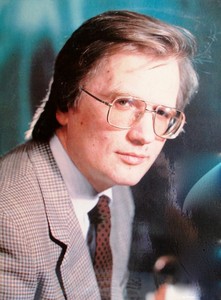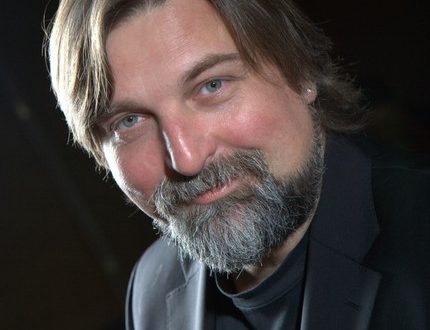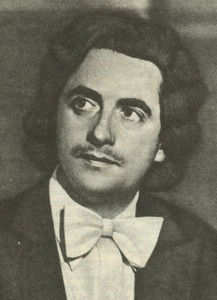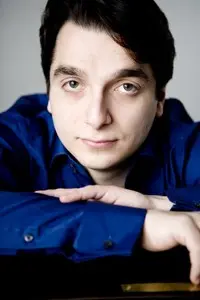
Viktor Kondratyevich Eresko (Victor Eresko) |
Victor Eresko

Rich traditions of interpretation of Rachmaninov’s music have been accumulated by the Soviet pianistic school. In the 60s, a student of the Moscow Conservatory Viktor Yeresko joined the most prominent masters in this field. Even then, Rachmaninov’s music attracted his special attention, which was noted both by critics and by members of the jury of the International Competition named after M. Long – J. Thibaut, who awarded the first prize to the Moscow pianist in 1963. Characteristically, at the Tchaikovsky Competition (1966), where Yeresko was third, his interpretation of Rachmaninoff’s Variations on a Theme of Corelli was highly appreciated.
Naturally, by this time the artist’s repertoire included many other works, including Beethoven sonatas, virtuosic and lyrical pieces by Schubert, Liszt, Schumann, Grieg, Debussy, Ravel, samples of Russian classical music. He devoted many monographic programs to the work of Chopin. His interpretations of Tchaikovsky’s First and Second Concertos and Mussorgsky’s Pictures at an Exhibition deserve high praise. Yeresko proved himself to be a thoughtful performer of Soviet music as well; here the championship belongs to S. Prokofiev, and D. Shostakovich, D. Kabalevsky, G. Sviridov, R. Shchedrin, A. Babadzhanyan coexist with him. As V. Delson emphasized in Musical Life, “the pianist has an excellent technical apparatus, a fixed, precise playing, and certainty of sound production techniques. The most characteristic and attractive thing in his art is deep concentration, attention to the expressive meaning of each sound. All these qualities developed on the basis of the excellent school he went through within the walls of the Moscow Conservatory. Here he first studied with Ya. V. Flier and L. N. Vlasenko, and graduated from the conservatory in 1965 in the class of L. N. Naumov, with whom he also improved in graduate school (1965 – 1967).
An important milestone in the pianist’s biography was 1973, the year of the 100th anniversary of the birth of Rachmaninoff. At this time, Yeresko performs with a huge cycle, including all the piano legacy of the remarkable Russian composer. Reviewing the Rachmaninoff programs of Soviet pianists in the anniversary season, D. Blagoy, reproaching the performer from a demanding position for a certain lack of emotional fullness in individual works, at the same time highlights the undoubted advantages of Yeresko’s playing: impeccable rhythm, plasticity, declamatory liveliness of phrasing, filigree completeness, precise “weighted” every detail, a clear sense of sound perspective. The above-mentioned qualities distinguish the best accomplishments of an artist even when he turns to the work of other composers of the past and the present.
So, his bright achievements are connected with Beethoven’s music, to which the pianist dedicates monographic programs. Moreover, even playing the most popular samples, Yeresko reveals a fresh look, original solutions, bypasses performing clichés. He, as one of the reviews of his solo concerto from Beethoven’s works says, “strives to move away from the beaten path, looking for new shades in well-known music, carefully reading Beethoven’s overtones. Sometimes, without any deliberateness, he slows down the development of the musical fabric, as if appealing to the listener’s concentrated attention, sometimes … he unexpectedly finds lyrical colors, which gives the general sound stream a special excitement.
Speaking about the game of V. Yeresko, critics put his performance among such names as Horowitz and Richter (Diapason, Repertoire). They see in him “one of the best contemporary pianists in the world” (Le Quotidien de Paris, Le Monde de la Musique), emphasizing “the special tone of his art of artistic interpretation” (Le Point). “This is a musician who I would like to listen to more often” (Le Monde de la Musique).
Unfortunately, Viktor Yeresko is an infrequent guest at Russian concert venues. His last performance in Moscow took place 20 years ago in the Hall of Columns. However, during these years the musician was active in concert activities abroad, playing in the best halls of the world (for example, in the Concertgebouw-Amsterdam, the Lincoln Center in New York, the Théâtre des Champs Elysées, the Châtelet Theatre, the Salle Pleyel in Paris)… He played with the most outstanding orchestras conducted by Kirill Kondrashin, Evgeny Svetlanov, Yuri Simonov, Valery Gergiev, Paavo Berglund, Gennady Rozhdestvensky, Kurt Mazur, Vladimir Fedoseev and others.
In 1993, Victor Yeresko was awarded the title of Chevalier of the Order of Arts and Literature of France. This award was presented to him in Paris by Marcel Landowsky, life secretary of the French Academy of Fine Arts. As the press wrote, “Viktor Yeresko became the third Russian pianist, following Ashkenazy and Richter, to receive this award” (Le Figaro 1993).
Grigoriev L., Platek Ya.





